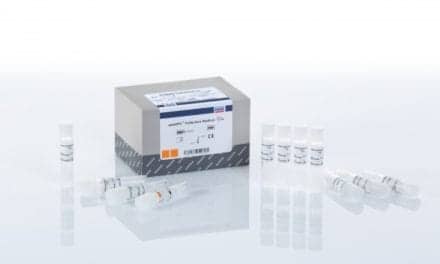A study conducted by the UNC Gillings School of Global Public Health and UNC Lineberger Comprehensive Cancer Center in Chapel Hill, NC discovered that sending HPV self-collection tests by mail and providing support to schedule in-clinic screening appointments for low-income women who were not screened enough increased cervical cancer screening rates by almost two times compared to solely providing assistance to schedule appointments.
The scheduling support mainly involved helping to book an appointment for screening in-person at a clinic, irrespective of whether an at-home test was sent or received, or whether the HPV test result was negative or positive.
Related: Why the Triage Approach Will Improve Cervical Cancer Screening and Diagnosis
Jennifer S. Smith, PhD, MPH, professor of epidemiology at UNC’s Gillings and the lead author of the study, expressed her optimistic expectation that mailing home-based collection kits would boost cervical cancer screening. However, she was delighted to discover that there was almost a two-fold increase in screening participation. Smith stated that numerous women had not participated in the screening process for an extended period of time, and delivering the kits to their homes helped remove a significant obstacle.
Based on data from the National Cancer Institute, approximately 14,000 women in the United States will receive a cervical cancer diagnosis this year, and the disease will result in over 4,300 deaths. Cervical cancer disproportionately affects Black and Hispanic women, with Hispanic women having the highest incidence rates, and Black women having the highest mortality rates for the disease in North Carolina and the U.S. The majority of cervical cancer cases arise in women who are not screened enough. The Centers for Disease Control and Prevention have estimated that 22% of eligible adults in the U.S. have missed the recommended screening.
For the My Body, My Test-3 study, 665 women between the ages of 25 and 64 were recruited from 22 counties throughout North Carolina. These women were uninsured or enrolled in Medicaid or Medicare, had low incomes, and were mainly living in urban areas. All of the participants had not undergone a pap test in the past four years or a high-risk HPV test in the past six years, indicating that they were behind schedule for screening.
During the study, two-thirds of the women were sent HPV self-collection kits by mail, along with support for booking a screening appointment at a clinic. The remaining third only received assistance for scheduling a screening appointment. The primary goal of the study was to determine if the participants attended an in-clinic screening appointment or tested negative for HPV with self-collected samples within six months of enrolling in the trial.
The results of the study revealed that the screening uptake rate was 72% among the women who received HPV self-collection kits by mail, whereas the other group’s screening uptake rate was only 37%. The study investigators also discovered that the impact of the self-collection outreach on screening uptake was consistent across age, race/ethnicity, duration since the last screening, insurance coverage under Medicaid or Medicare, and level of education.
Noel T. Brewer, PhD, Gillings Distinguished Professor in Public Health and a member of UNC Lineberger, and a co-author of the study, explained that home screening for cervical cancer puts women in control. By using at-home kits, most women can avoid visiting a doctor’s office. Furthermore, these kits are more accessible to individuals who lack screening access, are uncomfortable with cervical exams, or whose religious beliefs emphasize modesty.
Smith noted that she believes the results of the study can be applied to low-income, under-screened women throughout the United States. The research team is currently collaborating with clinical partners to identify women who may be overdue for screening through electronic medical records. Their goal is to offer the option of either mailing the women self-collection kits to use at home and mail back or handing the kits directly to them during clinic visits for other services. Ultimately, they hope to make self-collection a routine clinical provision.
In addition to their desire to make self-collection a standard clinical provision, the UNC researchers aim for their discoveries, combined with previous research outcomes, to encourage the Food and Drug Administration (FDA) to approve HPV self-collection as the primary screening test for cervical cancer in the United States.





